Apply now to join our next cohort of Community Science Fellows and Community Leads!
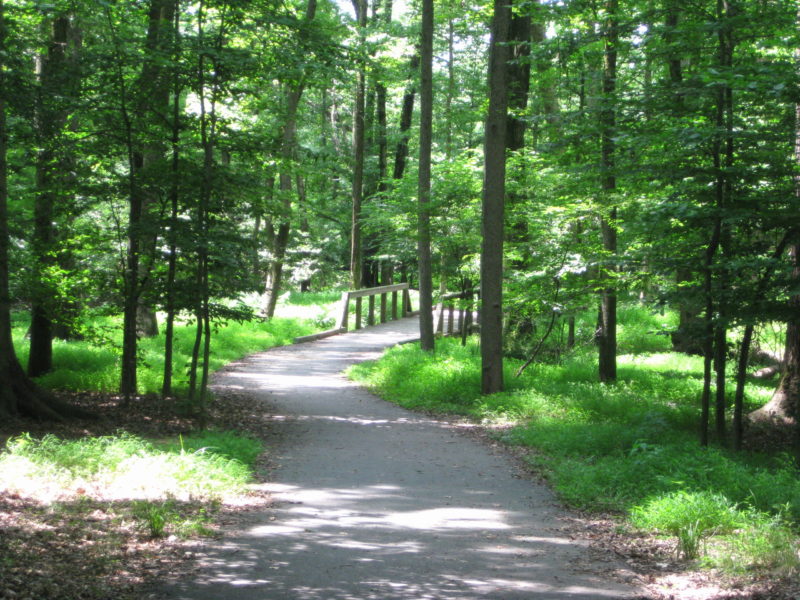
The beauty of Berwyn Heights’ tree canopy. Protecting it ensures biodiversity, and community health and wellness. (Image courtesy of Kerstin Harper, Town of Berwyn Heights)
This project proposes to actively work on an inventory of invasive plant species and assist with the development of outreach materials that can be used to engage the community broadly on the issue of protecting the local tree canopy. There are many steps people can take in their own backyards to reduce the negative impacts of invasive species. Among those impacts are effects like climate change and biodiversity loss.
Town of Berwyn Heights, Maryland
Berwyn Heights is approximately one square mile and is home to 3,100 residents living in 1,050 single-family homes on the hillsides of the Indian Creek Valley in Prince George’s County, Maryland. Learn more about the unique demographics of Berwyn Heights.
Berwyn Heights has a strong environmental ethic, becoming a Sustainable Maryland Certified Community in 2014. Sustainable Maryland is a certification program managed by the University of Maryland for municipalities in the state that are interested in going green, saving money, and taking steps to sustain quality of life over the long term. In 2012, Berwyn Heights established the Green Team, a residents’ committee to advance sustainability goals. This committee takes the lead on the Sustainable Maryland Certification process, with the support of the Town Council and staff.

The beauty of Berwyn Heights’ tree canopy. Protecting it ensures biodiversity, and community health and wellness. (Image courtesy of Kerstin Harper, Town of Berwyn Heights)
Today the town is turning its attention to protecting its tree canopy. In general terms, tree canopy refers to the upper part of trees (foliage) that covers the superior part of forests. Several years ago, Prince George’s County completed an inventory of trees in Berwyn Heights, but the report did not address the presence and impact of invasive species on the tree canopy and focused only on publicly owned areas. Berwyn Heights completed a tree canopy assessment in 2016 but has not conducted monitoring efforts since. Nearby communities have noted a decline in their tree canopies in the past 5–7 years. Berwyn Heights is eager to address the impacts of invasive plant species to protect the tree canopy and ensure the benefits that come from a robust tree cover.
The town is seeking scientific help to implement a tree canopy protection component of the Green Team’s action plan over the next three years, actively working on an inventory of invasive species and assisting in the development of outreach materials. This project will engage the community broadly and attendance at public meetings is an important element of the project’s outreach component.
Berwyn Heights is certified by the Arbor Day Foundation as a Tree City USA community and has a long-held value of tree protection. Residents—and specifically the town’s Green Team—have prioritized the protection of the tree canopy after witnessing declines in neighboring municipalities. One factor that has been identified as an area of concern for the tree canopy and the local ecosystem is invasive species. Without broader community engagement, the town is unlikely to be successful at preventing further decline of its ecosystems due to the spread of invasive species like ivy. Berwyn Heights engaged Sav-A-Tree on its last tree inventory project, but this did not include invasive species specifically. The town has also helped promote removal days and educational events hosted by Prince George’s County Park and Planning.
The project involves:
“The community would like help understanding how to reduce the impact of invasive plant species on the tree canopy so that they can develop public outreach materials and action steps property owners can take, which will enable their tree canopy to thrive.”
The community sees this as an opportunity to “change the world one backyard at a time.”
This project is estimated to take approximately 6–9 months to complete depending on the approach used for the inventory and the amount of time the scientist needs for the project. The town is open to recommendations from the volunteer scientist regarding the best methodology for the inventory and has access to volunteers in the community who are willing to help.
The project will start when the scientist is available.
Key milestones:
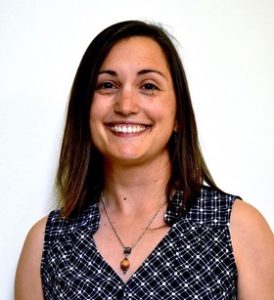 Dr. Amanda Dewey has served as Mayor of the Town of Berwyn Heights since being elected in June 2020 after serving two years as a Councilmember. As Mayor her priorities include community engagement and sustainability. She is also a Senior Research Analyst in Local Policy at the American Council for an Energy Efficient Economy. Amanda holds a doctorate in sociology from the University of Maryland where her research interests included environmental attitudes and values, environmental movements, environmental organizations, and human wildlife relationships. Amanda grew up outside of St. Louis, Missouri, and received her bachelor’s degree in sociology and Theatre from Vanderbilt University in Nashville, Tennessee. Amanda began her career as mid-Atlantic field organizer and special projects coordinator for the Endangered Species Coalition.
Dr. Amanda Dewey has served as Mayor of the Town of Berwyn Heights since being elected in June 2020 after serving two years as a Councilmember. As Mayor her priorities include community engagement and sustainability. She is also a Senior Research Analyst in Local Policy at the American Council for an Energy Efficient Economy. Amanda holds a doctorate in sociology from the University of Maryland where her research interests included environmental attitudes and values, environmental movements, environmental organizations, and human wildlife relationships. Amanda grew up outside of St. Louis, Missouri, and received her bachelor’s degree in sociology and Theatre from Vanderbilt University in Nashville, Tennessee. Amanda began her career as mid-Atlantic field organizer and special projects coordinator for the Endangered Species Coalition.
 Laura Allen, CPFO, ICMA-CM serves as the Town Manager of Berwyn Heights, Maryland. Ms. Allen has over 30 years of local government experience, 11 at the executive level in California and Maryland specializing in small communities. Ms. Allen has a master’s degree in public administration from the University of Nevada, Reno. She is a Credentialed City Manager (ICMA-CM) and a Certified Public Finance Officer (CPFO). Ms. Allen is a graduate of leadership programs at the International City/County Management Association and the University of Virginia, Darden Graduate School of Business. Ms. Allen currently serves on the Executive Board of the Government Finance Officers Association and as the Vice-President of the Maryland City/County Management Association. Ms. Allen is the Town Manager of Berwyn Heights and the Project Lead. She will serve as the primary point of contact.
Laura Allen, CPFO, ICMA-CM serves as the Town Manager of Berwyn Heights, Maryland. Ms. Allen has over 30 years of local government experience, 11 at the executive level in California and Maryland specializing in small communities. Ms. Allen has a master’s degree in public administration from the University of Nevada, Reno. She is a Credentialed City Manager (ICMA-CM) and a Certified Public Finance Officer (CPFO). Ms. Allen is a graduate of leadership programs at the International City/County Management Association and the University of Virginia, Darden Graduate School of Business. Ms. Allen currently serves on the Executive Board of the Government Finance Officers Association and as the Vice-President of the Maryland City/County Management Association. Ms. Allen is the Town Manager of Berwyn Heights and the Project Lead. She will serve as the primary point of contact.
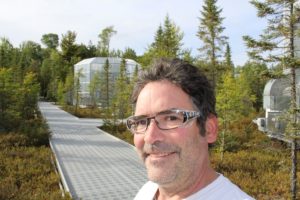
Dr. Jeff Warren, PhD is a Senior Staff Scientist within the Environmental Sciences Division and Climate Change Science Institute at Oak Ridge National Laboratory. Warren received his doctorate from Washington State University where he studied impacts of UV radiation on tree physiology and insect interactions. He has over 20 years of field experience as a plant physiologist and published more than 75 manuscripts. His research interests include how plants and ecosystems are impacted by changes in the environment, including subtle or severe abiotic disturbances (e.g., drought, heat wave) or biotic interactions (fungi, insects, invasive species). Much of his work is focused on photosynthesis, transpiration and soil-plant water relations. Recent interests include investigating forest ecology at edges and across gradients, such as the urban-rural interface. When not tromping around his boreal or tropical forest field sites, he enjoys mountain biking, cooking, gardening and planting trees in his yard. Dr. Warren is the representative of the scientific community.
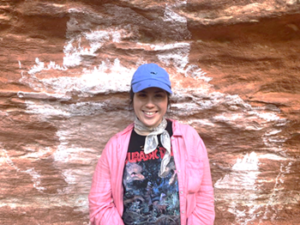
Irmarís Rivera-Llavona is a geoscientist from Puerto Rico. She holds a bachelor’s degree in Geology from University of Puerto Rico at Mayagüez. She is currently working as Operations Coordinator at EcoExploratorio: Science Museum of Puerto Rico. Irmarís has also worked as a Drinking Water Hygiene Specialist at the Puerto Rico Department of Health. Her passion for Science Communication, led her to create The Geology Project (TGP), a social platform dedicated to improving geoscience communication and education, which received the 2019 E-An Zen Geoscience Outreach Grant by the Geological Society of America – Geology & Society Division. Irmarís is a science educator, who considers community service a life-mission. She is an adventure seeker, and a nature admirer who loves to travel, drink coffee and enjoys family time. Irmarís is the Project Manager. She is responsible for logistics and relationships between the community and scientists.
Town of Berwyn Heights, Maryland
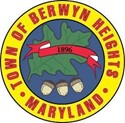
Incorporated in 1896, Berwyn Heights is approximately one square mile. The Town is home to 3,100 residents living in 1,050 single-family homes on the hillsides of the Indian Creek Valley in Prince George’s County, Maryland. For additional demographics you can access here.
Shaded by mature trees, Berwyn Heights has a small-town atmosphere in a major metropolitan area, where people get to know each other and neighbors chat across fences and are quick to lend a helping hand.
Community groups supporting this project include the Green Team and the Shade Tree Board. This project is part of the Green Team’s action plan required for its Sustainable Maryland Certification.
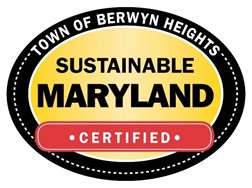
EcoExploratorio: Science Museum of Puerto Rico

The EcoExploratorio: Science Museum of Puerto Rico, a 501c3 non-profit organization, is committed to our mission of “inspiring people to explore, share and protect the natural environment through science, mathematics, engineering and technology” in Puerto Rico.
EcoExploratorio strives to support informal education efforts to build resilience to natural disasters, such as hurricanes, earthquakes, flooding, and landslides, but most important of all, to build a safer future where students, educators, and families are inspired and driven to learn, explore, and thrive. Our education program “Ciencia y Comunidad” (Science and Community) pursues to advance science education and resiliency in all our communities through innovative education initiatives in Puerto Rico and to the world.

(c) 2024 Thriving Earth Exchange